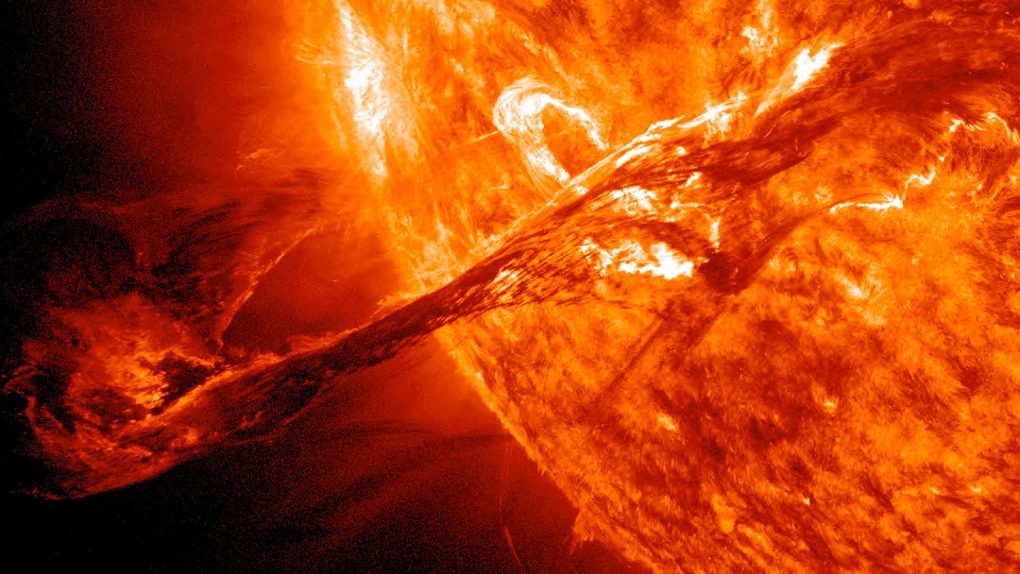Like all life on Earth, we owe a lot to the Sun. Without it, we wouldn’t be here, but it also has the power to make things pretty rough on us if it begins to act out. Solar flares — energetic outbursts which are often paired with mass ejections that fling charged particles out into space — are one of the things we have to watch out for.
Scientists have a relatively solid understanding of solar flares, and the ones we’ve seen from our own star have been pretty mild. But a new research paper warns that a massive “superflare” could be inevitable, and if it hits Earth we might be in serious trouble.
In the new research paper, scientists using data from the Kepler space telescope surveyed stars like our own Sun to determine how common superflare events are.
Very young stars tend to have more hostile personalities, and superflares are incredibly common in systems with stars that aren’t as mature as our sun. Astronomers assumed that this meant stars like the Sun have either grown out of their superflare phase or that such events were so rare that it wasn’t really worth worrying about.
“When our sun was young, it was very active because it rotated very fast and probably generated more powerful flares,” Yuta Notsu, lead author of the paper, said in a statement. “But we didn’t know if such large flares occur on the modern sun with very low frequency.”
The new data shows that this isn’t entirely true, and while superflares are indeed less common in mature stars, they’re more frequent than previously thought.
“Our study shows that superflares are rare events,” Notsu explains. “But there is some possibility that we could experience such an event in the next 100 years or so.”
Exactly what might happen if an incredibly powerful solar flare strikes Earth is hard to predict. Solar outbursts already have a habit of messing with electronics and communications grids, suggesting that our technological infrastructure would suffer greatly from a larger event. Unfortunately, there’s not much we can do beyond hoping that if a superflare does occur, Earth isn’t in its path.








